Figure shows an ideal pulley block of mass m = 1 kg. resting on a rough ground with friction coefficient . Another block of mass is hanging as shown. When system is released it is found that the magnitude of acceleration of point P on string is a. Find value of 4a in (Use )
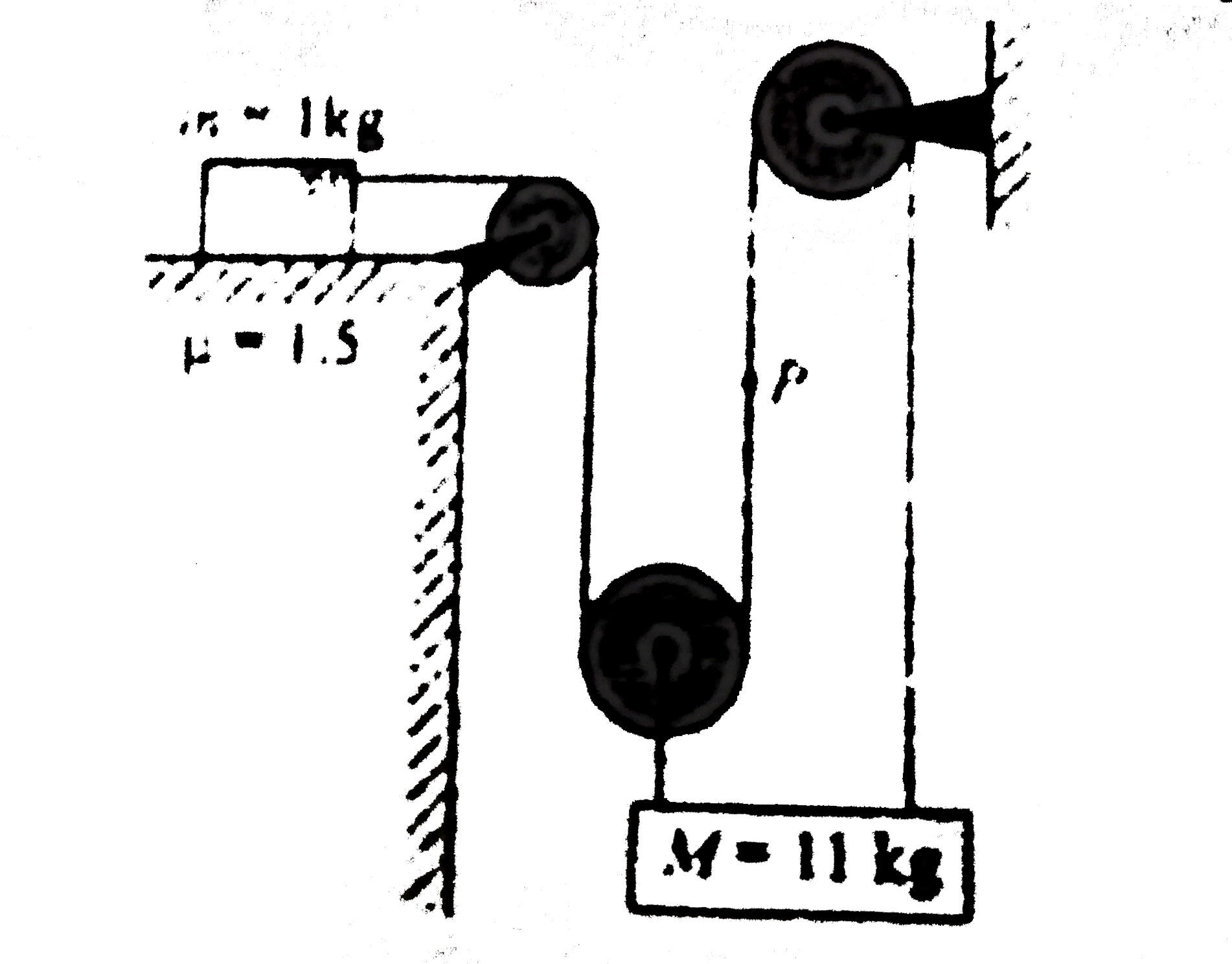
The correct Answer is:13
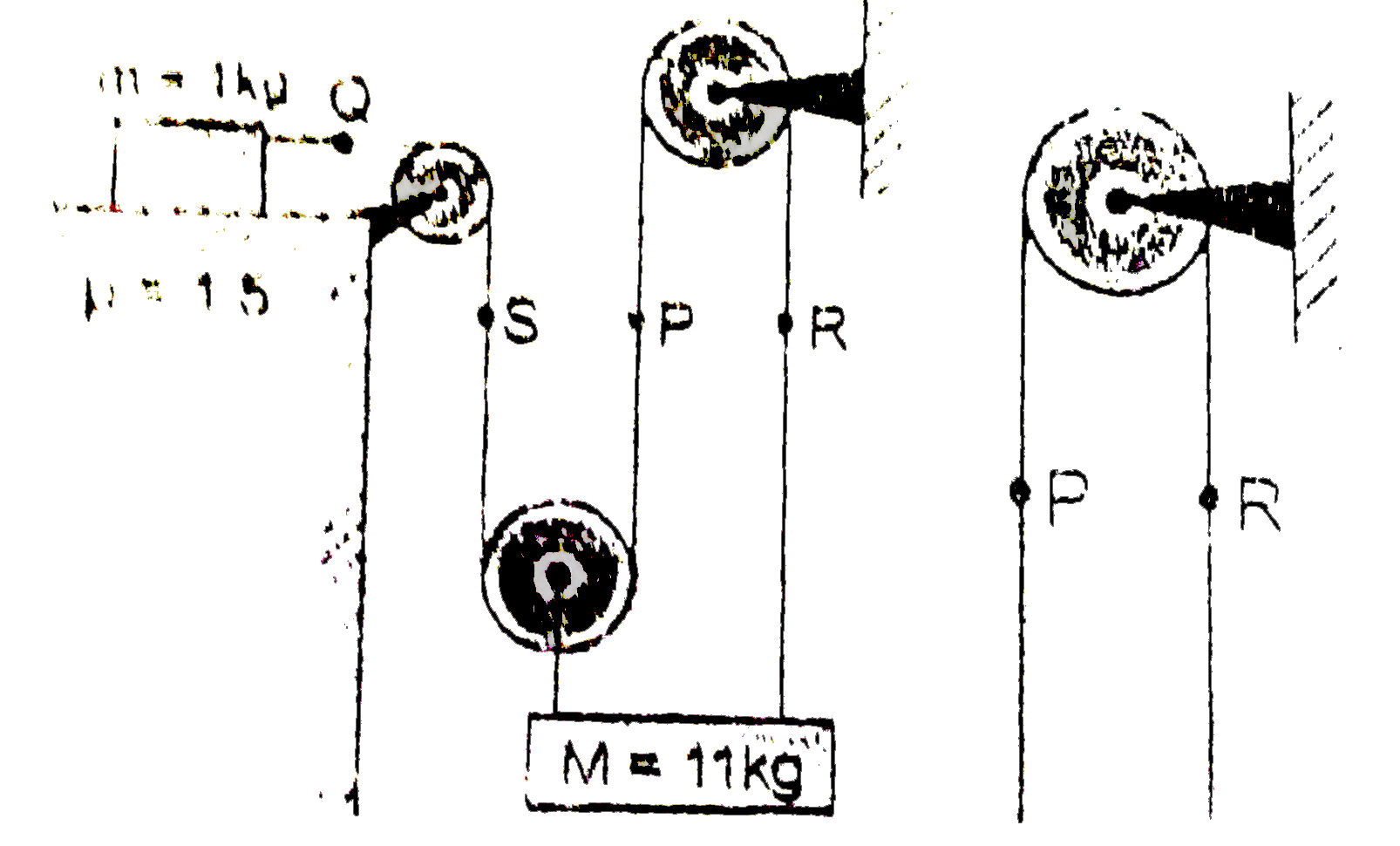
If the point P has an acceleration a upwards then the acceleration of point R will be a downwards.
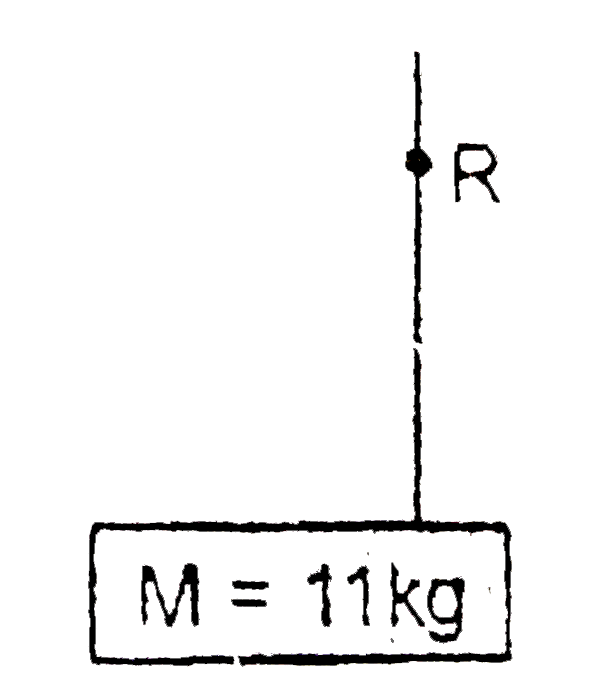
The point R has an acceleration a downwards so the block will also have an acceleration a downwards.
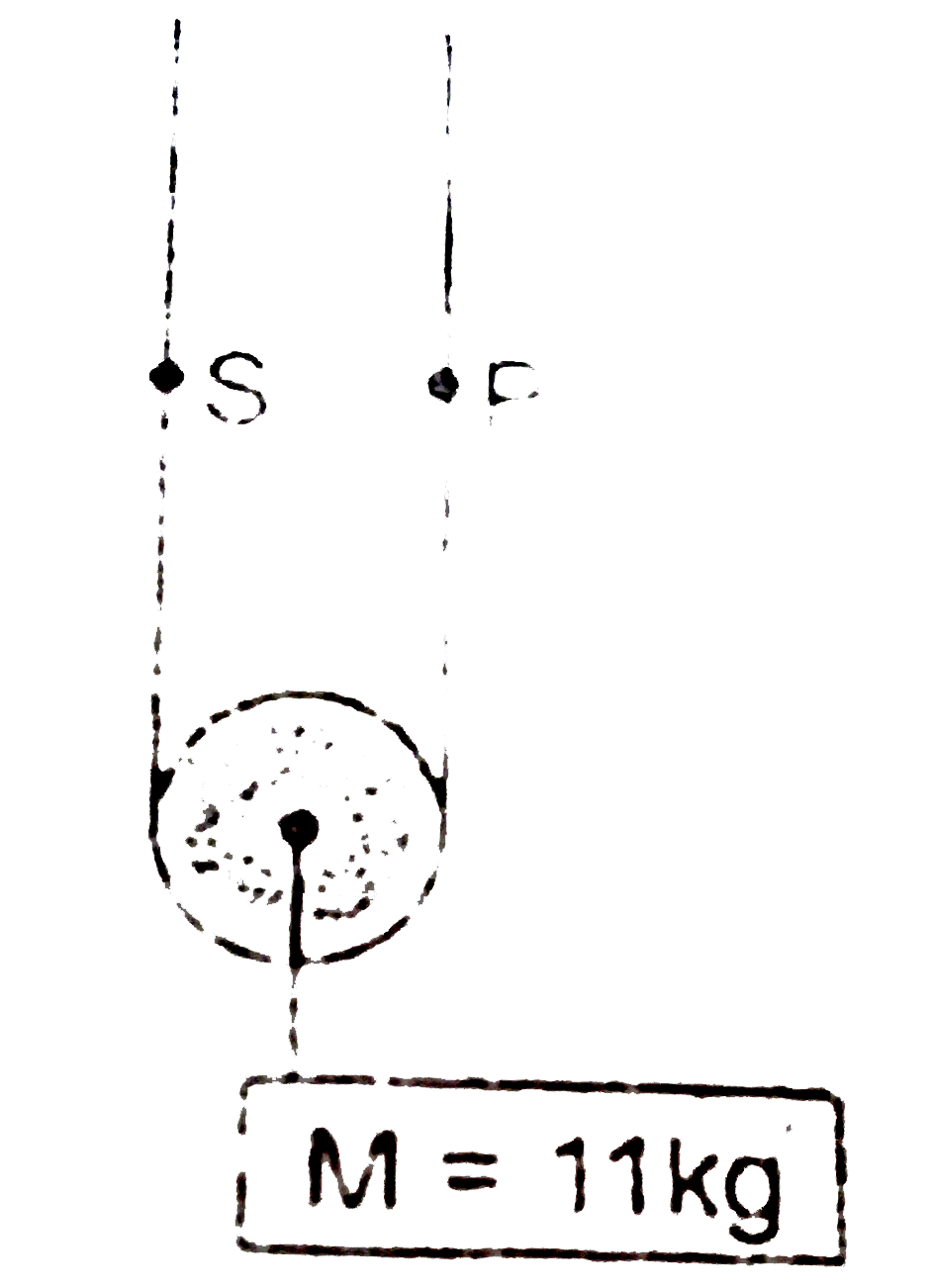
The point P has an acceleration on a upwards the block as an acceleration a downwards so the acceleration of S will be 3a downwards (because )
The point Q will also have an acceleration 3a towards right.
The F.B.D of 11 kg block
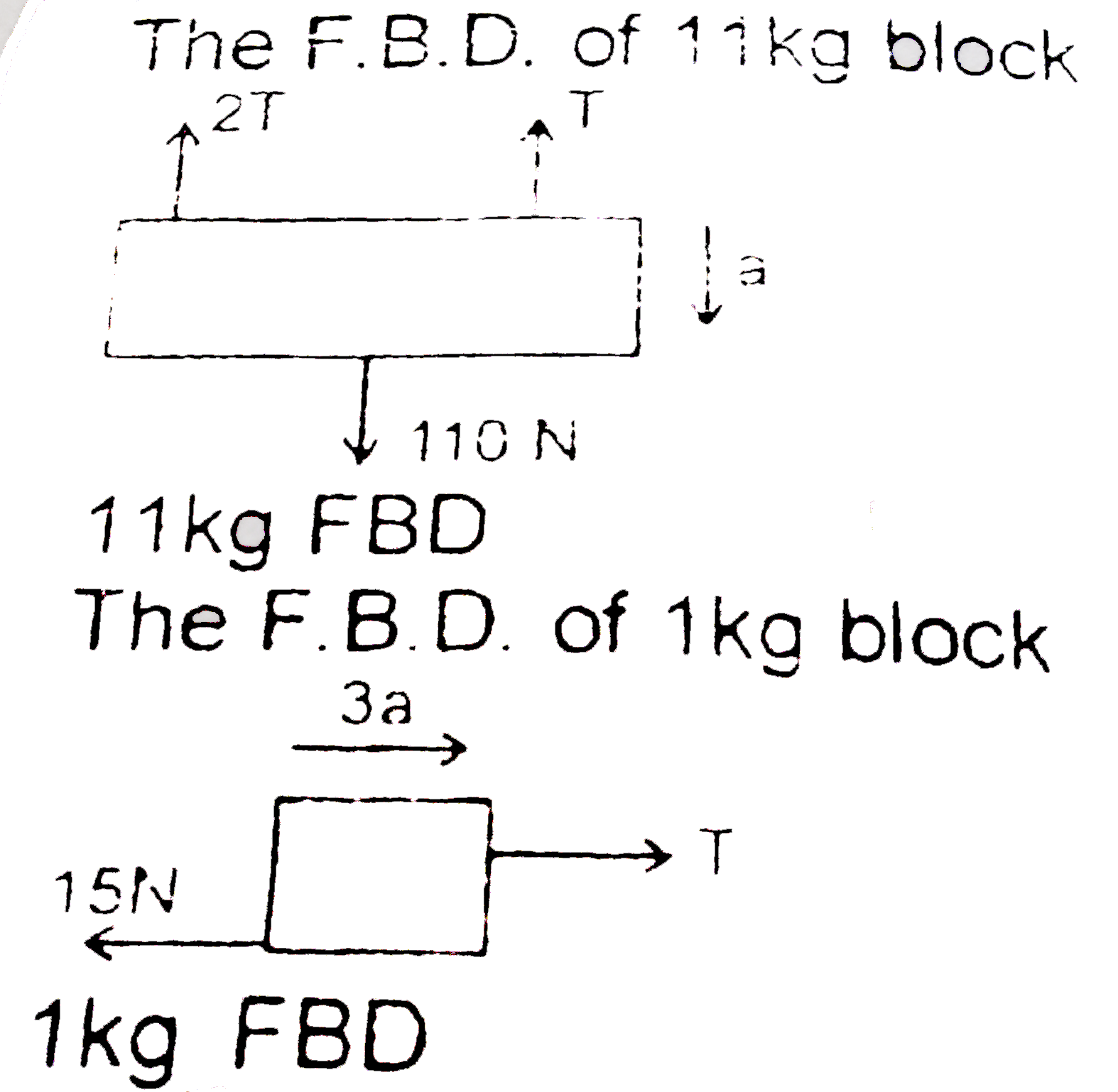
Using FBD of 11 kg block, which will have acceleration a downwards.
...(1)
(in downwards direction)
for 1 kg block, which will have acceleration 3a,
(in horizontal direction)
or ....(2)
on adding equation (1) & (2) we get
Topper's Solved these Questions
- DAILY PRACTICE PROBLEMBook:RESONANCEChapter:DAILY PRACTICE PROBLEMExercise:DPP No.21
Explore 20 Videos
- DAILY PRACTICE PROBLEMBook:RESONANCEChapter:DAILY PRACTICE PROBLEMExercise:DPP No.22
Explore 9 Videos
- DAILY PRACTICE PROBLEMBook:RESONANCEChapter:DAILY PRACTICE PROBLEMExercise:DPP No.19
Explore 20 Videos
- CURRENT ELECTRICITYBook:RESONANCEChapter:CURRENT ELECTRICITYExercise:High Level Problems (HIP)
Explore 21 Videos
- ELECTRO MAGNETIC WAVESBook:RESONANCEChapter:ELECTRO MAGNETIC WAVESExercise:Exercise 3
Explore 27 Videos
Similar Questions
Figure-2.54 shows a block of mass m is placed on an inclined wedge of mass M If the system is released from rest find the acceleration of m and M.
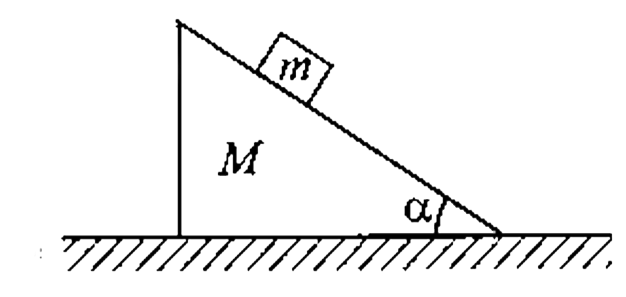
View SolutionTwo identical ladders, each of mass M and length L are resting on the rough horizontal surface as shown in the figure. A block of mass m hangs from P. If the system is in equilibrium, find the magnitude and the direction of frictional force at A and B.
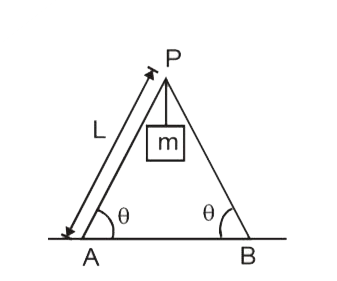
View Solution
Knowledge Check
A block of mass 2 kg rests on a rough horizontal plank , the coefficient of friction between the plank and block is 0.3. If the plank is pulled horizontally with a constant acceleration of 4m/s2 , the distance moved by the block on the plank in 5 second starting from rest (in m) is : (Take g = 10m/s2)
A5B10C25D50A block of mass m=5kg is resting on a rough horizontal surface for which the coefficient of friction is 0.2 . When a force F=40N is applied, the acceleration of the block will be (g=10m/s2) .
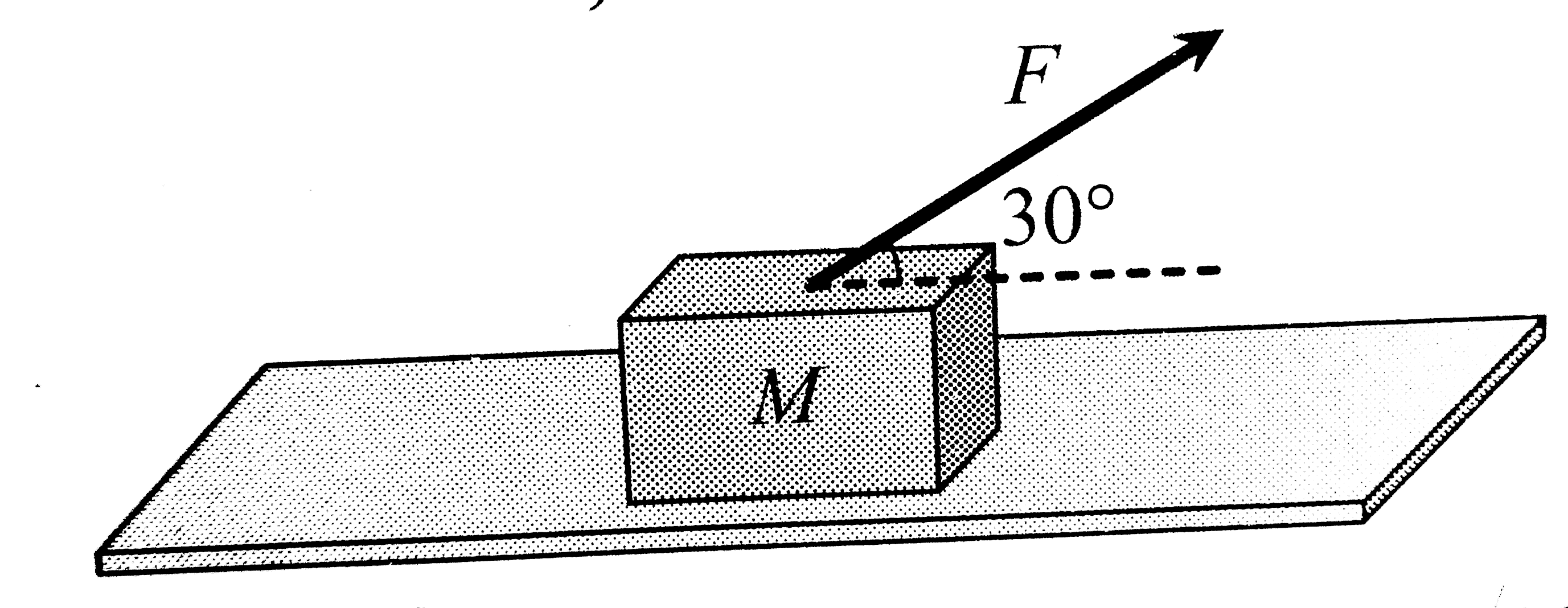 A5.73m/sec2B8.0m/sec2C3.17m/sec2D10.0m/sec2
A5.73m/sec2B8.0m/sec2C3.17m/sec2D10.0m/sec2
Two identical ladders, each of mass M and length L are resting on the rough horizontal surface as shown in the figure. A block of mass m hangs from P. if the system is in equilibrium, find the magnitude and the direction of frictional force at A and B.
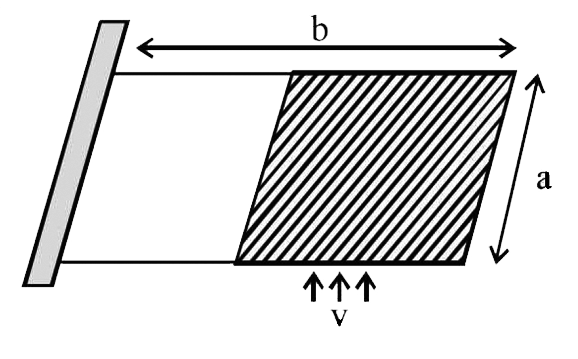
View SolutionTwo blocks of masses 5 kg and 4 kg are connected with ideal string which is passing over an ideal pulley as shown in figure. If the system is released from rest then the magnitude of acceleration of the blocks will be (Take g=10ms−2and√3=1.7)
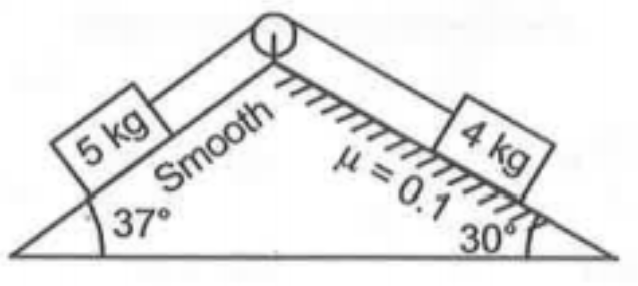
View SolutionFigure-2.64 shows a block of mass M supporting a bar of mass m through a pulley system. If system is released from rest, find the acceleration of block M and the tension in the strings
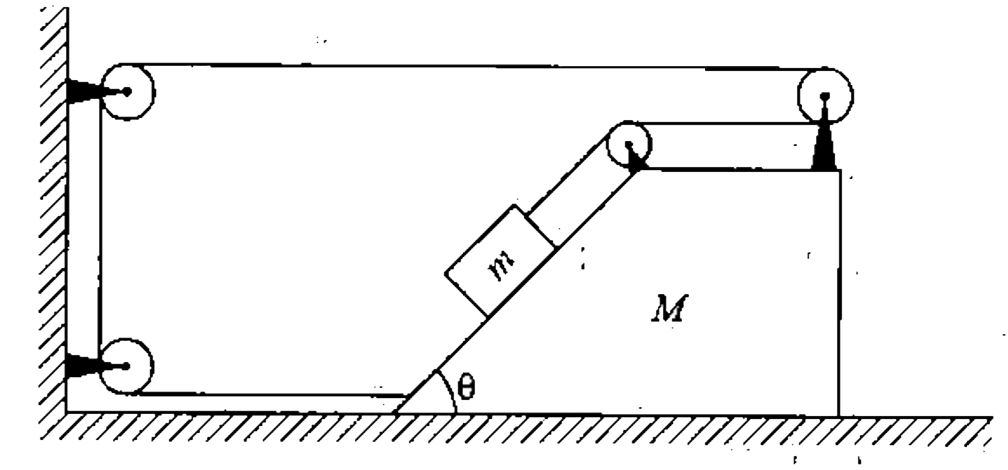
View SolutionIn the arrangement shown in the figure, block A of mass 8 kg rests on a horizontal table having coefficient of friction μ=0.5. Block B has a mass of 6 kg and rests on a smooth incline having inclination angle θ=sin−1(25) . All pulleys and strings are mass less . Mass of block C is M .
[g=10m/s2]
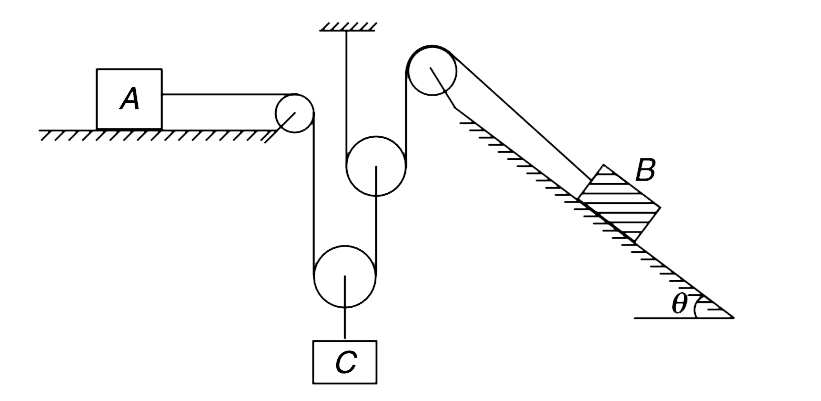
(a) Find value of M for which block B does not accelerate
(b) Find maximum value of M for which A does not accelerate.
View SolutionA 'block' of mass 10 kg is suspended with string as shown in figure. Find tension in the string. (g=10m/s2)
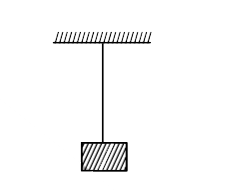
View SolutionTwo blocks of masses 5kg and 10kg are attached with the help of light string and placed on a rough incline as shown in the figure. Coefficients of friction are as marked in the figure. The system is released from rest. Determine the acceleration of the two blocks.
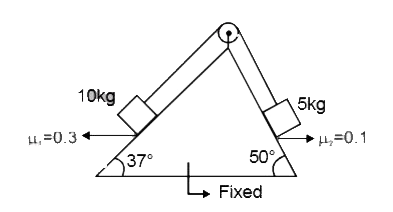
View Solution

